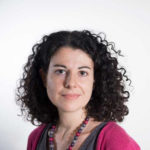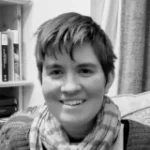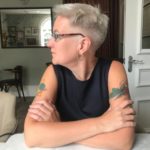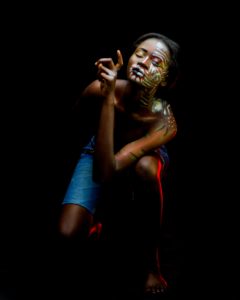Articulation / Experience / Embodiment Research Network
 About
About
Our experiences of the world are always embodied. We cannot help but speak from bodies; our bodies speak to us, in ways we may not consciously understand; and they also often speak for us in uncontrollable ways. As we articulate our embodied experiences, we bump against the understandings, experiences, and articulations of other-bodied people. The entanglements of articulation, experience, and embodiment mark every attempt to understand ourselves and every interaction with others.
Articulation / Experience / Embodiment probes these entanglements at the heart of the critical medical humanities. Through workshops, provocations, and dialogue, the network examines crucial questions around the relationship between experience and representation; different forms, means and contexts of articulating knowledge and health and illness; and the methods for narrativizing embodied experience that open out techniques and spaces for empathy, healing and change.
The research network spans Eastern Arc (UEA, University of Essex, University of Kent). Our approach is interdisciplinary and cross-sectoral. Our starting points for these investigations are queer theory, disability studies, and phenomenology. We are committed to participatory methods that further social justice and pursue this aim through engagement with health organisations with lived experience at the heart of their mission.
If you would like to be part of the network, please contact the Steering Committee Lead (2022-23), Tracey Loughran.
-
The A/E/E Research Network is led by a small steering group comprising colleagues from across our member universities.
Steering Committee Members 
Stella Bolaki is Reader in Medical Humanities and co-director of the Centre for Health and Medical Humanities at the University of Kent. She has research interests in experiences of illness and disability across different art forms which she has explored through her monograph Illness as Many Narratives: Arts, Medicine and Culture and her collaborative project Artists’ Books and Medical Humanities. Her research on arts and health also engages with different communities. She is currently working on a new project that examines how ideas and practices of self-care are interrogated and articulated in contemporary literature and culture. Email: s.bolaki@kent.ac.uk. Twitter account: @ArtistsBooks1 
Harriet Cooper is Lecturer in Medical Education at Norwich Medical School (University of East Anglia) and was previously Lecturer in Medical & Health Humanities in the School of Art, Media and American Studies. Harriet works at the intersection of medical humanities, disability studies and applied qualitative health research. Her medical humanities research has focused on the ‘making’ of disabled subjectivities and on the ways in which cultural anxieties about disability come to be embodied and lived. Her book Critical Disability Studies and the Disabled Child: Unsettling Distinctions was published by Routledge in 2020. Email: h.cooper@uea.ac.uk 
Francesca Govia was awarded her PhD in Literature from the University of Essex in 2022. Francesca’s thesis focused on how the psychiatric condition schizophrenia was represented in contemporary memoirs authored by an individual who associated with the diagnosis. As this thesis topics highlights, Francesca has a particular interest in how psychiatric conditions and literature intertwine. Following the submission of her thesis Francesca has returned to working full-time in the charity sector. 
Jane Hartshorn is a poet and PhD candidate at University of Kent, writing about the lived experience of chronic illness. Her pamphlets include In the Sick Hour (Takeaway Press, 2020) and Tract (Litmus Publishing, 2017). She has had poems published by Boudicca Press, Dostoyevsky Wannabe, Lucy Writers and SPAM and is an editor at Ache Press. She is co-founder of the CHASE Medical Humanities Network. janehartshorn.weebly.com @jeahartshorn 
Tracey Loughran is Professor of History at the University of Essex. Her research interests centre on the interaction of ideas and experiences of body, mind and self, and how knowledge is constructed, translated and transformed across different disciplines and contexts. This thread connects research projects on ‘shell-shock’ in First World War Britain, psychoanalysis in the interwar period, and female bodily experiences, psychological subjectivities and familial relationships in postwar Britain. Her most recent project, an intersectional history of women’s “everyday health” uses oral history interviews to understand women’s embodied experiences and has created a toolkit to improve adolescent emotional wellbeing. Email: t.loughran@essex.ac.uk 
Janet Mathieson was recently awarded her doctorate at the University of Essex for her thesis ‘The Cells: the creation of a novel from an interdisciplinary writing practice, in dialogue with Julia Kristeva, to reimagine cancer and care’. The Cells seeks to create a new discourse about cancer, narrativising this disease through the prism of a carer. Her research interests are in illness narratives; the narrativization of disease; the figure of the carer; clinicalisation/ medicalisation; autofiction; experimental writing; writing as processing; feminist writing; and the theories of Julia Kristeva. -
 The A/E/E Network will be formally launched at a workshop on 20 June 2023 at the University of Essex, and we are inviting proposals for papers and creative interventions that speak to the network themes.
The A/E/E Network will be formally launched at a workshop on 20 June 2023 at the University of Essex, and we are inviting proposals for papers and creative interventions that speak to the network themes.This workshop will examine crucial questions around the relationship between experience and representation; different forms, means and contexts of articulating knowledge and health and illness; and the methods for narrativizing embodied experience that open out techniques and spaces for empathy, healing and change.
The workshop will be a springboard for future activities, including an online “living dictionary” resource and a special issue/edited collection. We welcome proposals for traditional papers/panels, creative interventions, and participatory workshops. Individual papers or creative interventions should be 20 minutes long; panels or multi-person activities should be 1 hour long. Please submit abstracts of 200 words to Tracey Loughran (t.loughran@essex.ac.uk) by Friday 31 March 2023.
We welcome researchers at all stages of their studies and careers, working both within and outside academia. The workshop itself is free and we have a limited budget to support attendance. This will be allocated on a first-come, first-served basis, with prioritisation of PG students and those travelling from outside Essex.
